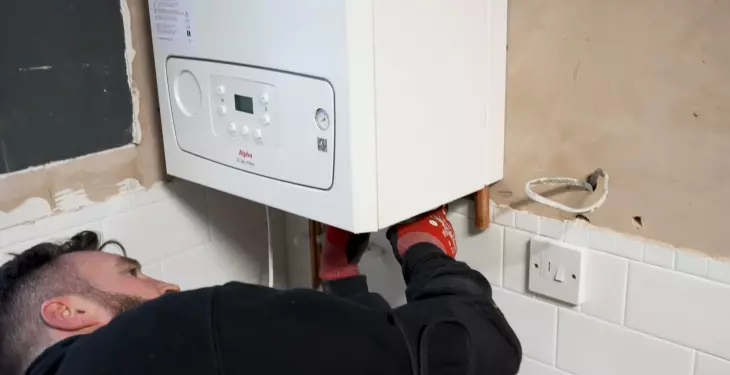

Written by Stephen Day
Gas Safe Engineer
Updated: 11th December, 2025
A boiler losing pressure is usually caused by a leak, trapped air, or a faulty valve - here’s how to fix it.
Get a new boiler quote, save up to £550 per year (0% APR available).
If your boiler is losing pressure, it usually means there is a small leak, trapped air in the system, or a fault with an internal part.
Low pressure can cause heating problems and, if ignored, lead to bigger issues inside your boiler.
Our Gas Safe engineers explain the main causes, how to spot the signs, and the safest way to restore pressure.
Check out our expert guide on if a boiler can lose pressure without a leak!
Most modern boilers use a sealed system that relies on water pressure to circulate heat through radiators and pipework.
When the pressure drops too low, the boiler struggles to push hot water around the system, leading to poor heating performance or shutdowns.
The pressure gauge on your boiler shows how much water is in the system.
When cold, it should read between 1 and 1.5 bar. If it falls below 1 bar, the system needs repressurising.
Gauge Reading (bar) | Meaning | Action |
0.1–0.5 | Too low | Repressurise system |
1.0–1.5 | Normal (when cold) | No action needed |
2.0+ | Too high (when cold) | Release pressure or call an engineer |
Stable pressure helps your boiler run efficiently and protects components from strain.
Low pressure reduces heating output, while excessive pressure can cause leaks or part failure.

Minor leaks are the most common cause of pressure loss. They may go unnoticed under floors or behind walls.
Fix: Have a qualified engineer reseal or replace any damaged fittings.
Cost guide: £100 to £200

If pressure keeps dropping even after topping up, there may be an internal leak inside the boiler casing.
Fix: A Gas Safe engineer will inspect the boiler and replace any worn seals, valves or gaskets.
Cost guide: £150 to £300 depending on the part
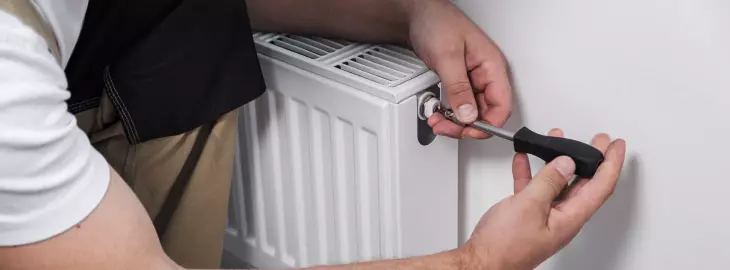
Bleeding radiators releases trapped air but slightly lowers pressure.
Fix: Repressurise the system using the filling loop until the gauge reads 1 to 1.5 bar.
Cost guide: Free if done yourself
The expansion vessel balances pressure as the system heats and cools.
If it fails or loses charge, pressure can rise too high and escape through the relief valve.
Fix: A Gas Safe engineer can recharge or replace the vessel and check the relief valve.
Cost guide: £250 to £450 depending on boiler type
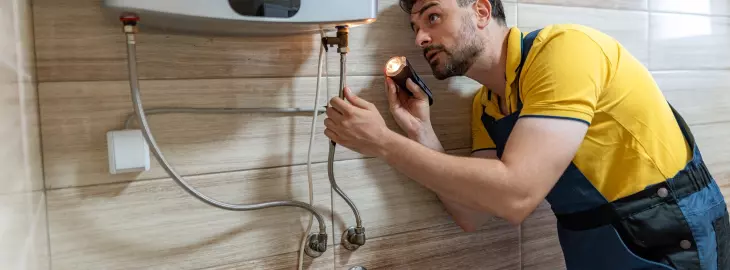
A filling loop left partially open can cause continuous changes in pressure.
Fix: Make sure both ends of the loop are fully closed once the boiler has been topped up.
Cost guide: Free if corrected early
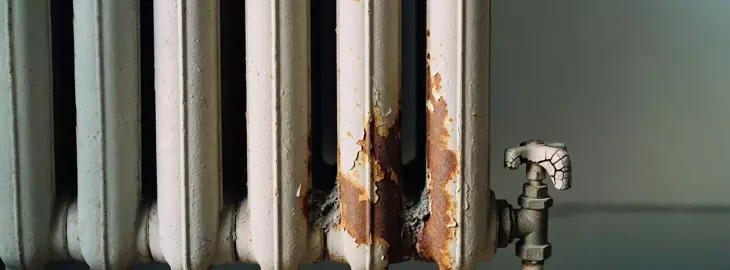
Without corrosion inhibitor fluid, sludge and rust can form inside pipes, creating leaks or blockages.
Fix: A system flush and new inhibitor will help prevent future problems.
Cost guide: £150 to £250
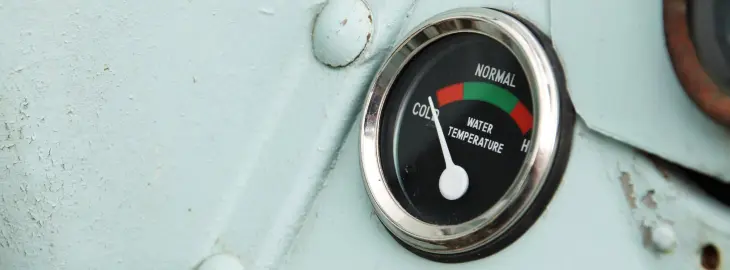
Cold weather can cause pipes to contract slightly, leading to small pressure dips.
Fix: Check the gauge regularly. Persistent pressure drops may indicate another issue.
Cost guide: None unless repairs are required
Radiators cold at the top or uneven heating
Gurgling or bubbling noises from pipework
Pressure gauge reading below 1 bar
Fault code or flashing pressure warning on display
Boiler turning off unexpectedly
These are the most common signs noticed by homeowners before the heating fails completely. Low pressure can also affect hot water flow and shower performance, and our boiler and shower issue fixes guide explains how to sort these problems.
A reading below 1 bar means pressure is too low.
Between 1 and 1.5 bar is ideal, and around 2 bar when hot is normal.
Inspect around radiators, valves and under the boiler for any damp areas or signs of corrosion.
The filling loop is a flexible metal hose beneath the boiler. Both valves should be turned off after topping up the system.
A small drop after bleeding radiators is normal. Regular pressure loss suggests a leak or faulty part.
Many modern boilers lock out when pressure is too low. Make note of any error codes to share with your engineer.
Turn off the boiler and let it cool.
Locate the filling loop under the boiler.
Slowly open both valves until you hear water entering the system.
Watch the gauge and close the valves once it reaches 1 to 1.5 bar.
Turn the boiler back on and check that pressure holds steady.
Cost guide: Free
Switch off the heating.
Use a radiator key to open the bleed valve until water flows steadily.
Close the valve and check the boiler gauge, topping up if required.
Cost guide: Free
If the copper pipe outside your home is dripping, the pressure relief valve may be discharging water.
This should be checked by an engineer.
Cost guide: £100 to £250 depending on repair
If pressure drops again within a day or two after topping up, or you notice damp patches near the boiler, contact a professional.
An engineer will test the expansion vessel, inspect valves and seals, and look for any internal leaks.
Cost guide: Diagnostic visit £80 to £120
If your boiler repeatedly loses pressure despite several repairs, internal corrosion or wear could be the cause.
At that point, replacement may be more cost-effective.
Cost guide: Minor repairs £100 to £300. Replacement from £1,500.
An annual service allows engineers to clean key parts, test pressure controls, and prevent small issues from becoming major faults.
Inhibitor fluid helps prevent corrosion and sludge build-up. It should be checked and topped up during servicing.
Monitor your boiler’s pressure once a month, especially before winter. Early detection prevents breakdowns.
Look out for damp patches, minor drips or strange noises from the system.
These can all indicate developing leaks or trapped air.
Boiler pressure loss is usually caused by small leaks, air in the system or a faulty expansion vessel.
Repressurising can resolve minor drops, but recurring issues should always be checked by a Gas Safe engineer.
Most low pressure problems are simple to fix once identified, and regular servicing keeps your system safe, efficient and reliable.
Last updated: 11th December, 2025

Written by Stephen Day
Gas Safe Engineer at iHeat
Stephen Day is a Gas Safe registered and FGAS certified engineer with over 20 years of hands-on experience in the heating, cooling, and renewable energy industry, specialising in boiler installations, air conditioning, and heat pump systems.
LinkedInArticles by Stephen Day are reviewed by iHeat’s technical team to ensure accuracy and reliability.

19th February, 2026
Selecting the appropriate boiler for your London home involves understanding the different...
 Read Article
Read Article

19th February, 2026
A typical Annual Boiler Service includes a visual inspection to identify any obvious fault...
 Read Article
Read Article

19th February, 2026
Boiler servicing comprises a set of inspections and tests conducted by a qualified enginee...
 Read Article
Read Article
No obligation. Takes less than 60 seconds.